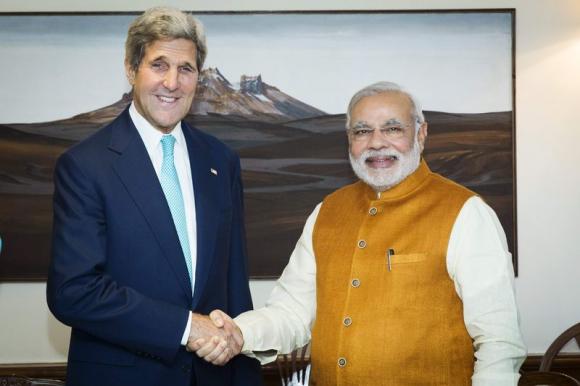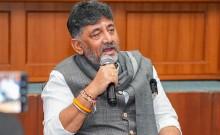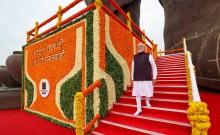
Presidents — or for that matter, most incoming officeholders — are routinely given a honeymoon period at the beginning of their first term by the American public, the media and even the opposition. During this phase, which can last from several months to a year or so, people tend to refrain from criticizing newly elected leader unless criticism is absolutely warranted.
Judging by the reactions in Washington and rest of the United States, it appears that the US foreign policy establishment, the business community and the media have extended that ritualistic honeymoon period to Prime Minister Narendra Modi.
Since his impressive victory in the world's largest democratic exercise more than a month ago, the White House and the Department of State have gone more than half way to ensure that they have a credible working relationship with the new Indian leader.
One outstanding issue that they needed to address was the fallout of the revocation of Modi's US visa by the State Department in 2005 on the ground that he didn't do enough to prevent the Gujarat riots a few years earlier.
The US side was aware that the action had strained its relationship with Modi. The Obama administration blunted the issue by coming out early, as Modi was inching closer to 7, Race Course Road, and declaring that if he was elected prime minister, the Bhartaiya Janata Party leader would be granted a visa to visit the United States. With President Obama inviting the prime minister to visit Washington in their first ever phone, that issue now seems to be a thing of the past.
Overall, there has been a palpable change in tone in Washington when it comes to India since Modi took over. Gridlock and pessimism — which were the hallmark of the last couple of years of the United Progressive Alliance government led by Prime Minister Manmohan Singh — were also the words that best described the India-US relations in recent years.
Six months ago, the two nations were locked in a diplomatic stalemate that threatened to derail much of the progress made in the bilateral relations during the past two decades. The arrest of Indian diplomat Devyani Khobragade in New York on visa fraud charges last December had put an extreme strain on the relationsip that existed between the two countries.
In the backdrop of the stalemate was a series of minor and major differences that had plagued the relations for a while. They included India's refusal to recognize intellectual property rights of some US-based pharmaceutical companies, the lack of progress in implementing the civil nuclear treaty, the perceived failure of the Singh government to advance the market reforms, and an overall policy paralysis in New Delhi.
During the last two years of the Manmohan Singh government, the influential US business community was in almost continuous conflict with India on these issues. But since Modi was sworn in, some of the business groups, which had put relentless pressure on India until now, have signaled a more conciliatory stance.
Among them is the National Association of Manufacturers (NAM), which, along with the US pharmaceutical industry, has been one of the harshest critics of India in the United States in recent days.
"NAM stands ready to work together with the Indian government and the Indian business community to share its experiences and best practices, as well as work with the US Congress and trade representatives," said the organization's president and CEO Jay Timmons, at an event his organization co-hosted with the conservative Weekly Standard. "By working together on trade, investment and other issues, we can grow both our economies in a fast-paced and globally connected world economy."
There are many reasons for the optimism among the business community about Modi. First of all, there is a general perception that the new government understands its concerns better than the previous one — even though it was led by Singh, a trained economist whom many describe as the father of market reforms in India.
Secondly, Modi, unlike his predecessor, is his own man, who also has the executive experience, having successfully run a state for more than a decade. Few think, he would be stonewalled and rendered ineffective by leaders of his party the way Singh was.
In addition, the US businesses think that things will be different the next five years because of their experience in dealing with Modi while he was the Gujarat chief minister and the largely business friendly policies he authored in the state.
Outside of the US business community and official Washington, a number of South Asia experts and commentators in American media have also painted optimistic pictures about the future of India-US relations. "Fresh leadership in New Delhi under Prime Minister Narendra Modi will provide opportunities to expand cooperation on defense and security, as well as on economic, counterterror, nuclear, and other issues," wrote Lisa Curtis, a senior research fellow at the Heritage Foundation.
In the United States, political honeymoons usually last from a few months to a year or so. The length of the honeymoon is often dependent on how the new officeholder gets out of the gate, what kind of policies are announced and actions taken, and most importantly, their results.
In the same way, the length of Modi's honeymoon will last is dependent on the policies his government pursue in the next few months and their results. Inevitably, no matter what Modi does and the successes, he achieves, the honeymoon period will end, as it always does. Then, what will matter will be the strength of the relationship and the bonds that were forged in the early stages of the "marriage."















